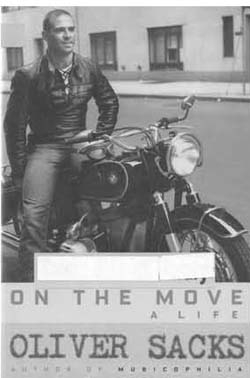Oliver Sacks, who is the author of a dozen books on the neurological mysteries stemming from impairments of the brain resulting in odd, un-understood behaviours, is known by the lay public primarily through the movie, Awakenings, based on his work with patients who were survivors of encephalitis lethargica. The so-called ‘sleeping sickness’ had killed many thousands in the 1920s and those who survived but had not recovered, were housed in a hospital where Dr Sacks started working in 1966.
For a good forty years, the patients were frozen in deeply Parkinsonian states, some stuck in catatonic postures like statues—not unconscious but with their consciousness suspended at the point where the disease had invaded certain parts of the brain. Dr Sacks’s use of the experimental and controversial drug L-Dopa in carefully calibrated doses that worked by stimulating the brain stem systems, brought the patients out of their ‘physiological limbo’ in what appeared as a miraculous ‘awakening’.
Dr Sacks’s case histories of individual patients (many of whom relapsed into their primitive states) were duly recorded as medical notes and later turned into an article which was rejected by a respected medical journal, then expanded into a slim volume of nine chapters which also was turned down by Faber & Faber. This so disheartened Dr Sacks that he put away the ms and subsequently lost it. This was the first of several times that he either destroyed or lost his writings when he had trouble publishing his findings. Fortunately for him, he rewrote the book adding five more case histories, and finally published it in 1973, with barely a murmur of acknowledgement from the medical establishment, but with glowing praises from a few including the poet W.H. Auden, who later became a close friend.
The reception of the book was puzzling in other ways too. While generally received well in the press, its winning the Hawthornden Prize for ‘imaginative literature’ made Dr Sacks wonder if Awakenings had any scientific merit. Sacks’s book was made into a documentary film by Yorkshire Television and broadcast in 1974 in England. Later it was turned into an Oscar-nominated movie with Robin Williams and Robert de Niro.
The story behind the experimental treatment, the days and nights spent at the hospital (at his request, Dr Sacks was given a house next to the hospital, so he could be on call 24 hours), the before-andafter video recordings of the patients, the writing of the book, the many stumbles along the way, unfolds dramatically in Dr Sacks’s telling of it. Indeed, his passion for writing, was a lifelong enterprise, and saved him from being merely an academic neuorologist.

